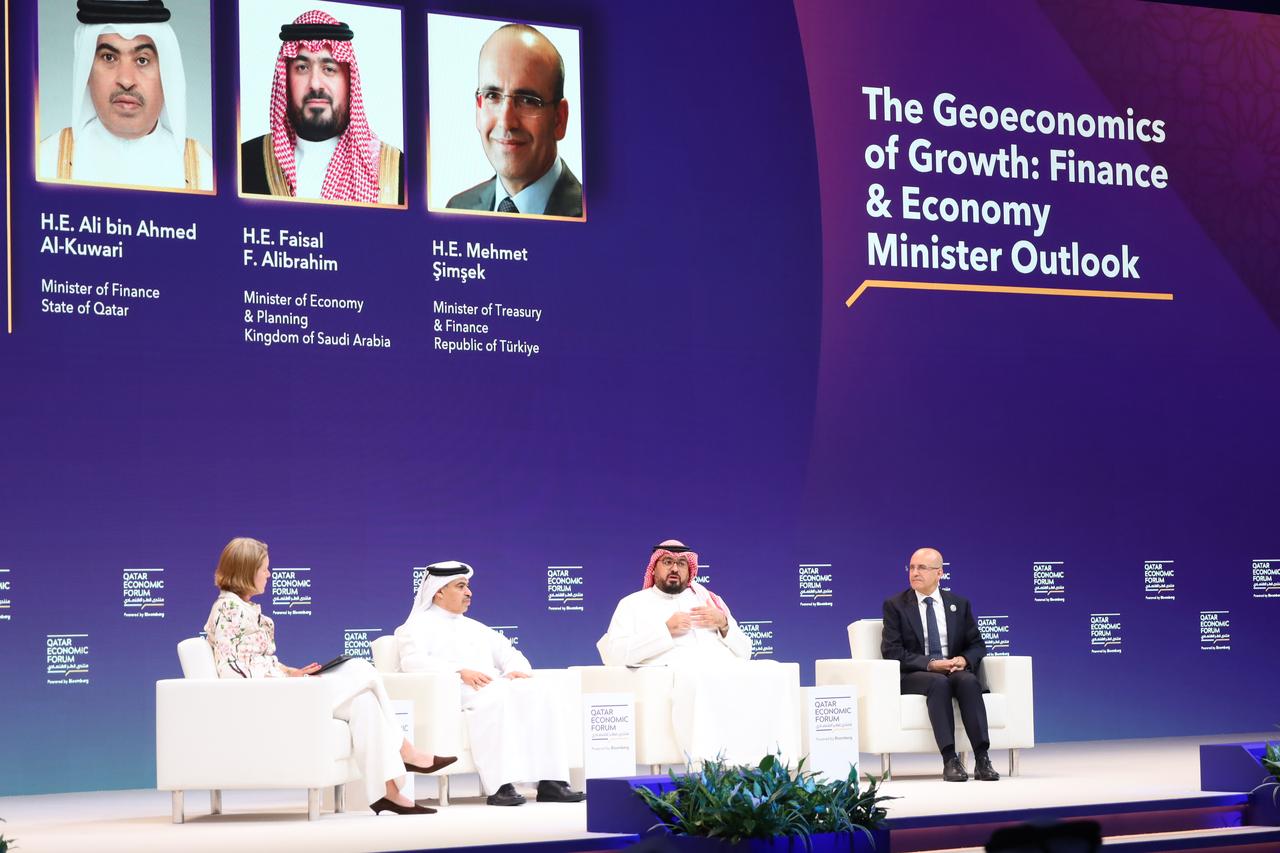
Türkiye’s Treasury and Finance Minister Mehmet Simsek stated Tuesday that recent economic indicators show signs of stabilization, as foreign exchange reserves recover and investor confidence strengthens.
According to recent data released by the Turkish central bank last Thursday, Türkiye's total international reserves stood at $144.34 billion as of May 9, while gross foreign exchange reserves rose to $61.22 billion.
Speaking at the Qatar Economic Forum in Doha, where he appeared alongside Qatar’s Finance Minister Ali Bin Ahmed Al-Kuwari and Saudi Arabia’s Economy Minister Faisal Al-Ibrahim, Simsek said Türkiye’s credit default swaps (CDS)—a key measure of sovereign risk—have declined by more than 90 basis points over the past two weeks, settling at 292.

“Investor perception has improved, and it’s clearly reflected in financial market conditions,” Simsek noted, underlining that the economic program is delivering results despite persistent inflation. He added that inflation has dropped to its lowest level in 40 months and that the rise in foreign direct investment (FDI) over the past year signals long-term confidence in Türkiye’s economy.
Simsek emphasized that the country’s economic strategy is not based on speculative short-term capital but instead focuses on structural reforms and sustainable growth. He argued that Türkiye’s strong infrastructure and skilled labor force position it as a resilient destination for investment, especially amid global trade fragmentation.
He also noted that when inflation falls further, predictability will rise, strengthening Türkiye’s appeal to long-term investors.
Commenting on U.S. plans to lift sanctions on Syria, Simsek said a peaceful and stable Syria would bring substantial benefits to both the region and Türkiye. “We share a 911-kilometer border, and conflict hurts everyone,” he said, adding that regional peace would reduce Türkiye’s economic burden.
Simsek also referenced Türkiye’s long-term counterterrorism spending, estimated at $1.8 trillion over five decades. A potential disbandment of the terrorist group PKK, he said, could allow funds to be redirected toward development. “These developments could serve as a lever for Türkiye’s rise,” he remarked.
Simsek reiterated the government’s commitment to bringing down inflation. While recognizing temporary disruptions in some export sectors, he said targeted support has been expanded. “No treatment is without side effects,” he said, but added that the core aim is to ensure sustainable, high-quality growth.
He also pointed to ongoing strength in the services sector and the creation of nearly one million jobs last year, despite weaknesses in manufacturing due to a slowdown in the eurozone. With household debt below 10% of gross domestic product (GDP), Simsek argued that Türkiye has the resilience to maintain its disinflation path.